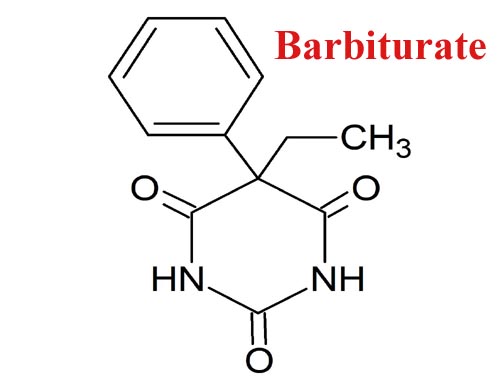Epileptic, Phenobarbital usage, Barbiturate Abuse

Published: 18 Jun 2025
ICD9: 304.1 ICD10: F13.20 ICD11: NE60
This phrase describes a combination of medical and substance use factors:
![]() Epileptic: This indicates that the person has epilepsy, a neurological disorder characterized by recurrent seizures.
Epileptic: This indicates that the person has epilepsy, a neurological disorder characterized by recurrent seizures.
![]() Phenobarbital usage: Phenobarbital is a barbiturate medication used to control seizures in individuals with epilepsy. Its use suggests that the person is or was being treated for their epilepsy with this specific medication.
Phenobarbital usage: Phenobarbital is a barbiturate medication used to control seizures in individuals with epilepsy. Its use suggests that the person is or was being treated for their epilepsy with this specific medication.
![]() Barbiturate Abuse: This signifies that the person is misusing or has misused barbiturates, which includes phenobarbital (and other similar drugs), in a way that is harmful or not as prescribed. This could involve taking larger doses than prescribed, using it more frequently, using it for non-medical purposes, or continuing to use it despite negative consequences.
Barbiturate Abuse: This signifies that the person is misusing or has misused barbiturates, which includes phenobarbital (and other similar drugs), in a way that is harmful or not as prescribed. This could involve taking larger doses than prescribed, using it more frequently, using it for non-medical purposes, or continuing to use it despite negative consequences.
This combination is significant because:
![]() Complex Medical History: It points to a complex medical history involving both a chronic neurological condition (epilepsy) and potential substance use issues.
Complex Medical History: It points to a complex medical history involving both a chronic neurological condition (epilepsy) and potential substance use issues.
![]() Increased Risk: Barbiturate abuse can worsen seizures in some people with epilepsy. Furthermore, suddenly stopping barbiturates after prolonged use can also trigger seizures.
Increased Risk: Barbiturate abuse can worsen seizures in some people with epilepsy. Furthermore, suddenly stopping barbiturates after prolonged use can also trigger seizures.
![]() Treatment Challenges: Managing epilepsy in someone with a history of barbiturate abuse can be more challenging. Alternative seizure medications might be considered, and careful monitoring is essential. The barbiturate abuse needs to be addressed to fully treat the person.
Treatment Challenges: Managing epilepsy in someone with a history of barbiturate abuse can be more challenging. Alternative seizure medications might be considered, and careful monitoring is essential. The barbiturate abuse needs to be addressed to fully treat the person.
![]() Dependence and Withdrawal: Long-term use of barbiturates, even as prescribed, can lead to physical dependence. Abrupt cessation can cause dangerous withdrawal symptoms, including seizures.
Dependence and Withdrawal: Long-term use of barbiturates, even as prescribed, can lead to physical dependence. Abrupt cessation can cause dangerous withdrawal symptoms, including seizures.
Important Note: This information is for general understanding only and should not be used for self-diagnosis or treatment. A qualified medical professional should be consulted for any health concerns. The combination of these issues necessitates careful assessment and management by a healthcare team.